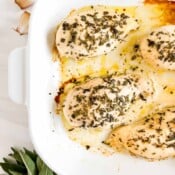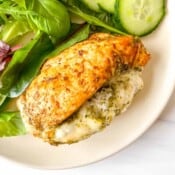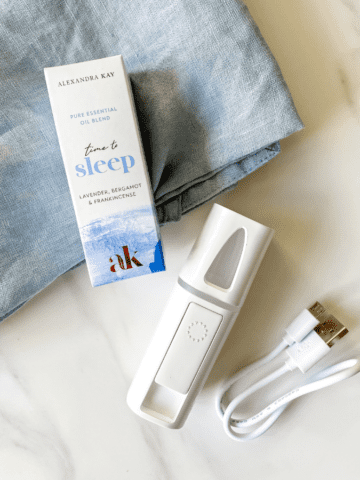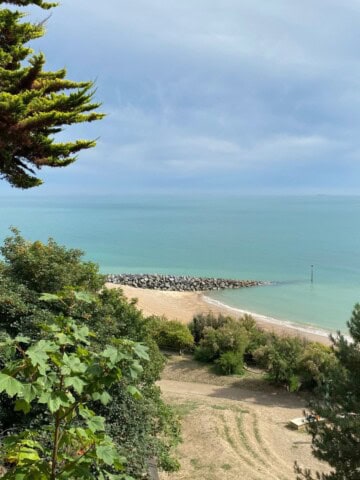Approximately a year and a half ago I was in Accident and Emergency (the ER for US readers!) at 3am. Unknown to me at the time I was having a MCAS flare-up with significant symptoms (mast cell activation syndrome). I had woken up boiling hot, shaking like a leaf and with very painful burning skin on my face. It was truly terrifying.
This post is my story and for informational use only. It should not be taken as medical advice in any way, and it is important that you consult with a doctor if you have MCAS (or suspect you do) and follow their advice. Always consult a doctor before taking a new supplement.

Jump to:
The struggle for a diagnosis
At A&E, they did nothing other than take some blood and give me anti-nausea medication. I wasn't nauseous, so that prescription remains a mystery! Of course, MCAS wasn't going to be on the forefront of the minds of the doctors or nurses, as it is a rare condition. I frequently come across medical professionals that have never heard of it; some google it in front of me . . .
I was finally diagnosed with MCAS some months later, and prescribed antihistamines and mast cell stabilisers. I was also advised to take quercetin, a flavanol that is being investigated as a supplement to help the condition, and follow a low histamine diet. In my opinion, the combination of these medications, supplements and dietary changes has stopped my condition from becoming worse.
However, I do still suffer from flare-ups of symptoms. I think most people with chronic illness, whether MCAS or another condition, will agree with me when I say that a flare-up of symptoms is an emotional time.
If things have been a little better, a set-back of heightened symptoms seems so unfair. It makes progress seem futile, perhaps impossible. It makes you sad, and down. I spend ages going over and over what I have eaten, how I've exercised etc etc to try and work out what caused the flare. Sometimes I can figure it out, most times I am none the wiser.
Related post: Living with MCAS (mast cell activation syndrome)
The experience of a MCAS flare-up
Today, as I am writing this, I have just had a really nasty flare-up of MCAS symptoms. For the past few days my skin has been intensely painful due to flushing, and I am so tired despite sleeping fairly well. My joints hurt, there is itchy skin and a permanent heightened headache.
Although I don't know why my symptoms have flared, I know that any form of stress makes it far worse. So worrying over little things, as has happened a few times recently, isn't helpful.
When I feel a flare-up starting, I know I have to make some changes and be more attentive to my health and my outlook on the increased symptoms. I can't change that I have this condition, but I can change my reaction to it.
Being stressed and angry will undoubtedly happen from time to time. I think it is a natural response. But instead of sulking, I can do nice things and enjoy myself as best I can. Hopefully, reducing stress will also help with symptoms.
Personally, I find that the following are the most beneficial:
Eating a low histamine diet
I follow the SIGHI food list to eat a low histamine diet, and try to eat predominantly whole foods rather than processed ones. That's not to say that I am perfect, and sometimes I have an ill-advised treat now and again, but when I am in a flare-up I go back to basics and eat nutritious food I prepare myself, including from my own low histamine recipes.
And eating a low histamine diet doesn't have to mean boring food - have you seen all the cookies in my 'snacks' section on the low histamine recipes page?!
I also like to look at cookbooks to find something fun to eat that fits with this diet. Some helpful low histamine cookbooks (not all follow the SIGHI list):
- The 4-phase Histamine Reset Plan
- Histamine Intolerance: The Cookbook
- Mast-cell Friendly and Low Histamine Cooking
Related post: Living the low histamine life - FAQ

Relaxation techniques
Relaxation is pretty individual and we all like to do different things. For me, being outside, in the park or my garden, is one of the most restful things I can do. Perhaps it is cliche to say, but I find being in nature very calming. A picnic, and a good book and I am very happy for a few hours!
I also like to meditate for its calming feeling. Some good apps include Insight Timer and the Calm app. Just five minutes makes me feel more grounded.
Other ways to practice some self-care include reading for fun, watching a light-hearted movie, arts and crafts, playing with a pet, colouring books, a gentle walk (if able) or some slow stretches.
Prescribed medications
I always take my prescribed medications of mast cell stabilisers and anti-histamines, but when I am in a flare-up I am even more attentive to timing my medication correctly, and making sure I don't forget to take anything.
Supplements
There are some supplements, including quercetin, which studies suggest works as a mast cell inhibitor. I take these everyday, whether in a flare-up or not, but make doubly sure to take them when my symptoms are increased. I find quercetin to be particularly beneficial, and am thankful my doctor recommended it to me. Always consult with a doctor before taking a new supplement, as some people may not be able to tolerate.
Read relevant books
There are three books on MCAS that I return to when I am in a flare-up to sort-of 'check in' with my condition, educate myself and make sure that I am doing everything I can in terms of lifestyle changes to help myself. The three books I find very helpful are:
- Mast Cells United, by Amber Walker
- Never Bet Against Occam: Mast Cell Activation Disease and the Modern Epidemics of Chronic Illness and Medical Complexity, by Dr Lawrence Afrin
- My Crazy Life: A Humorous Guide to Understanding Mast Cell Disorders, by Daniel and Pamela Hodge
I'm not perfect, and my response to a flare-up will not always be that positive. But being aware that there are options to dealing with a flare makes me more likely to choose self-care over anger. And that can only be a good thing.
I do want to emphasise that this isn't medical advice, and if you are in a flare-up of symptoms it is always advisable to speak to your doctor for professional advice.
Related posts
Living with mast cell activation syndrome
For more posts on MCAS and chronic illness come join me on Instagram and Facebook!
Please follow the advice of your doctor as to all medical treatments, supplements, and dietary choices, as set out in my disclaimer. I am not a medical professional, and this is simply my story and the resources that are helpful to me.

















Melina says
Hi - thank you for putting this amazing information together!
I am currently being tested for MCAS and am looking for information on how to deal with the symptoms. One piece of information I cannot seem to get is what it actually feels like for people to have MCAS. Most days I feel too bad to do anything, and cannot do most of the things I used to do on a daily basis, but never bad enough that I need to go hospital. What does it feel like to live with MCAS and how well can you get your symptoms under control?
Claire says
Hi Melina, thank you for the kind words! I would suggest having a look at the Mast Cell Action website, which is so helpful. In terms of what it feels like, from everything I have read and through conversations with others, this can be very individual. We can have a whole range of symptoms, and range in severity. I would speak to your doctor about medication, a low histamine diet (referral to a dietician may be useful) and stress reduction measures.
Ange says
This was such a reassuring read for myself, who has recently been diagnosed and have no clue where to start. It helps so much to know that I'm not alone and there are things that can be done to slow it down.
Claire says
Hi Ange, sorry to hear that you have MCAS as well, I know it's such a challenging condition to manage. I would definitely suggest having a look at the Mast Cell Action website if you have just been diagnosed as it has so much helpful information. All the best, Claire